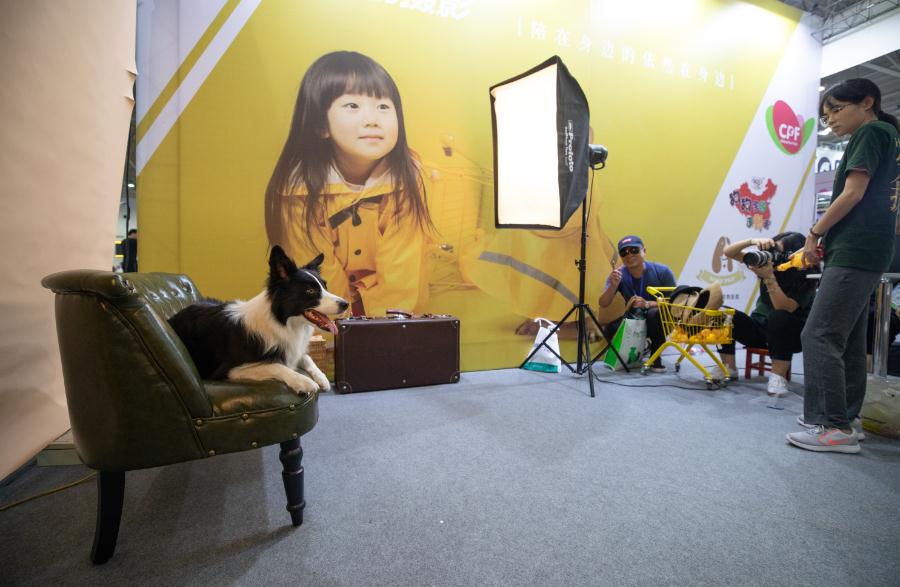Shoppers splashing their spare cash online


Smart products and high-quality or tailored services prompt higher e-commerce expenditure among affluent netizens
Chen Liang and her husband, both in their early 30s, have no children, but allocating 1,000 yuan ($147) per month for their pet dog named Huahua has become a routine item in the family budget.
Recent purchases for their beloved shiba inu include a foldable pet bed, dog clothes, smart pet feeders, and tailored grooming services. The couple constantly seek out increasingly eccentric gadgets to pamper their beloved companion.
"She's an irreplaceable family member, bringing us so much joy. That's why we want to make her happy, too," Chen said.
Chen is just one among the many pet owners who together generated overall spending of 170 billion yuan last year, according to goumin.com, a major Chinese online forum for pet owners.
Pet-related services will see 20 percent annualized spending growth each year, with the total amount spent to hit 250 billion yuan by 2022, said Shenzhen, Guangdong province-based ASKCI Consulting in a recent report.
Surging expenditure on pet care is a reflection of a broader shift in consumption habits among China's middle-income earners. Those who can afford more than the basic daily essentials are now buying services that enrich their lives.
E-commerce giant JD's research arm, 21 JD Big Data Institute, found in a survey released earlier this month that service consumption is taking money fast via online channels.
Avid spenders are typically residents in the nation's relatively affluent Yangtze River Delta region, which includes Shanghai and the neighboring Zhejiang, Jiangsu and Anhui provinces.
The report identified two factors that contributed to this uptake trend: one based on physical goods such as car maintenance and housekeeping, and the other referring to products that are services in themselves, such as travel, pet care and insurance.
For instance, customers from Shanghai, Suzhou in Jiangsu province and Hangzhou in Zhejiang province ranked the top three cities for auto repair expenses over the past two years.
As for outbound travel, the number of international flight tickets booked by female users in Shanghai was 10 times higher than their peers in second and lower-tier cities, according to JD's data.




































